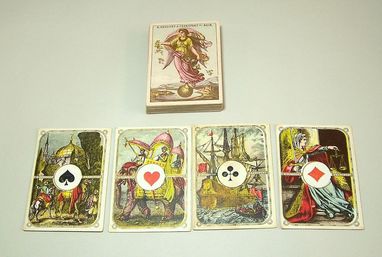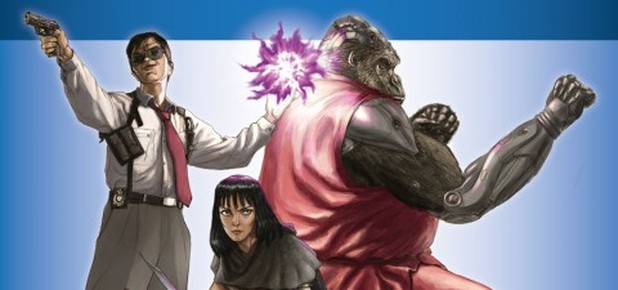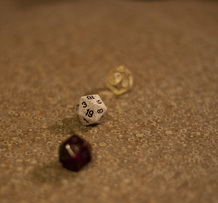
This year, I decided to enter into the 200 Word RPG Challenge. This is an awesome contest that forces you to be succinct and creative. My entry was not selected as a finalist this year, but I'm really glad I made something for it. I've seen a lot of the other entries and there are some fantastic (and crazy) ideas in the finalists.
Lots of these games don't use dice to resolve the actions in the game. My own entry uses cards and a trick-taking mechanic similar to bridge. But some games involve burning matches, drinking water, or throwing darts. All in all, the tight constraints in both time and word count make for some cool experiments. You can find out more about the contest here: http://schirduans.com/david/200-word-rpg-challenge-2016
This is my game as submitted for the contest. I'd like to add to it and clarify some things, but maybe that's not in the spirit of the challenge and I should just leave it as is :)
Township
“Beasts, rebels, and raw nature threaten your town. What will you sacrifice to survive?”
Setup:
Place the jacks and kings of a deck in front of you. Shuffle the rest.
“What talents do you bring to your town?”
Spades - Authority, Insight, Leadership
Hearts - Compassion, Connections, Inspiration
Diamonds - Wealth, Negotiation, Wit
Clubs - Labour, Fighting, Hunting
Take your suit’s jack and king, plus 4 cards.
Play:
The dealer raises the stakes each round.
Ending:
If the town has fewer tricks than the dealer, it is destroyed. No one survives.
Otherwise, narrate your character’s fate based on their tricks:
Tricks Ending
0 Ruined/Killed
1 Shamed/Hurt
2+ Rich/Lauded
Lots of these games don't use dice to resolve the actions in the game. My own entry uses cards and a trick-taking mechanic similar to bridge. But some games involve burning matches, drinking water, or throwing darts. All in all, the tight constraints in both time and word count make for some cool experiments. You can find out more about the contest here: http://schirduans.com/david/200-word-rpg-challenge-2016
This is my game as submitted for the contest. I'd like to add to it and clarify some things, but maybe that's not in the spirit of the challenge and I should just leave it as is :)
Township
“Beasts, rebels, and raw nature threaten your town. What will you sacrifice to survive?”
Setup:
Place the jacks and kings of a deck in front of you. Shuffle the rest.
“What talents do you bring to your town?”
Spades - Authority, Insight, Leadership
Hearts - Compassion, Connections, Inspiration
Diamonds - Wealth, Negotiation, Wit
Clubs - Labour, Fighting, Hunting
Take your suit’s jack and king, plus 4 cards.
Play:
- Dealer draws 4 cards and decides what Threat they represent
- She lays them face down, announcing each suit
- She narrates the Threat. Ex. “The nightly howling drove the miller mad. He ran into the woods.”
- Describe your character’s reaction
- Place a card next to a Threat card of the same suit
- Flip and compare all the cards
- If the Threat is higher, the dealer takes the trick
- If the player wins, they choose:
- Take the trick and describe how the character helped themselves
- Give the trick to the town and describe how it is better off
The dealer raises the stakes each round.
Ending:
If the town has fewer tricks than the dealer, it is destroyed. No one survives.
Otherwise, narrate your character’s fate based on their tricks:
Tricks Ending
0 Ruined/Killed
1 Shamed/Hurt
2+ Rich/Lauded


 RSS Feed
RSS Feed